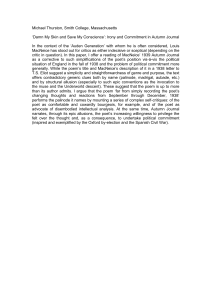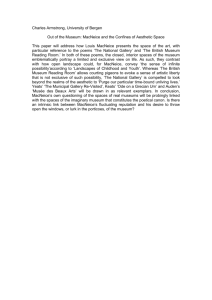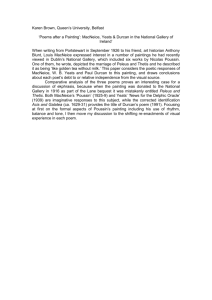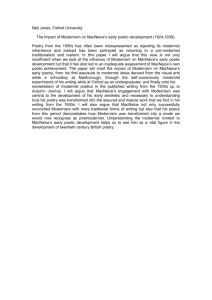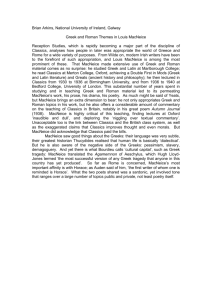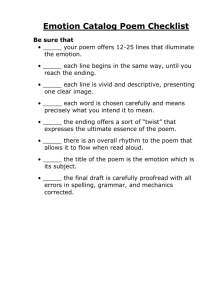Katie Fleming, Queen Mary, University of London
advertisement
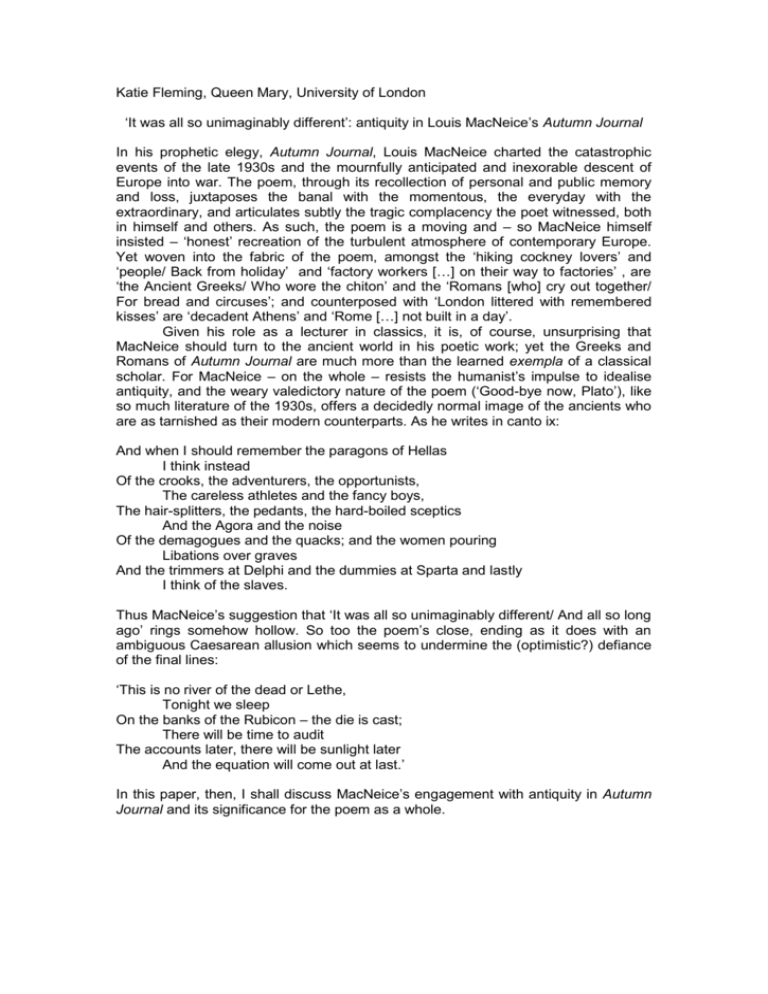
Katie Fleming, Queen Mary, University of London ‘It was all so unimaginably different’: antiquity in Louis MacNeice’s Autumn Journal In his prophetic elegy, Autumn Journal, Louis MacNeice charted the catastrophic events of the late 1930s and the mournfully anticipated and inexorable descent of Europe into war. The poem, through its recollection of personal and public memory and loss, juxtaposes the banal with the momentous, the everyday with the extraordinary, and articulates subtly the tragic complacency the poet witnessed, both in himself and others. As such, the poem is a moving and – so MacNeice himself insisted – ‘honest’ recreation of the turbulent atmosphere of contemporary Europe. Yet woven into the fabric of the poem, amongst the ‘hiking cockney lovers’ and ‘people/ Back from holiday’ and ‘factory workers […] on their way to factories’ , are ‘the Ancient Greeks/ Who wore the chiton’ and the ‘Romans [who] cry out together/ For bread and circuses’; and counterposed with ‘London littered with remembered kisses’ are ‘decadent Athens’ and ‘Rome […] not built in a day’. Given his role as a lecturer in classics, it is, of course, unsurprising that MacNeice should turn to the ancient world in his poetic work; yet the Greeks and Romans of Autumn Journal are much more than the learned exempla of a classical scholar. For MacNeice – on the whole – resists the humanist’s impulse to idealise antiquity, and the weary valedictory nature of the poem (‘Good-bye now, Plato’), like so much literature of the 1930s, offers a decidedly normal image of the ancients who are as tarnished as their modern counterparts. As he writes in canto ix: And when I should remember the paragons of Hellas I think instead Of the crooks, the adventurers, the opportunists, The careless athletes and the fancy boys, The hair-splitters, the pedants, the hard-boiled sceptics And the Agora and the noise Of the demagogues and the quacks; and the women pouring Libations over graves And the trimmers at Delphi and the dummies at Sparta and lastly I think of the slaves. Thus MacNeice’s suggestion that ‘It was all so unimaginably different/ And all so long ago’ rings somehow hollow. So too the poem’s close, ending as it does with an ambiguous Caesarean allusion which seems to undermine the (optimistic?) defiance of the final lines: ‘This is no river of the dead or Lethe, Tonight we sleep On the banks of the Rubicon – the die is cast; There will be time to audit The accounts later, there will be sunlight later And the equation will come out at last.’ In this paper, then, I shall discuss MacNeice’s engagement with antiquity in Autumn Journal and its significance for the poem as a whole.
